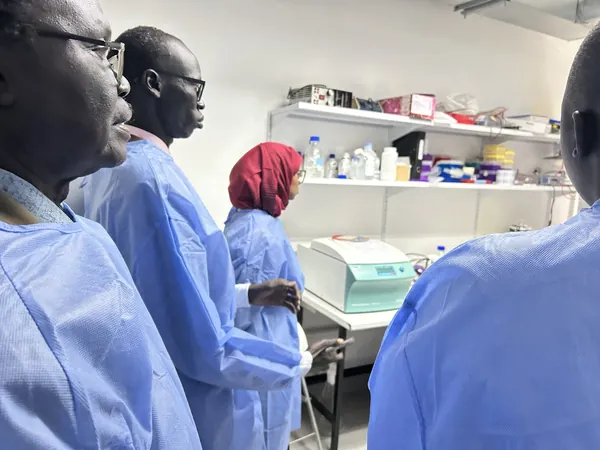
Lack of Sleep in Young Adults: A Recipe for Danger on the Road and at Work!
2025-09-03
Author: Wei
The Hidden Dangers of Sleep Deprivation
Recent research reveals that sleep-related risks among young adults are far more complex than we previously realized. A groundbreaking study from Murdoch University lays bare how overlapping sleep issues can drastically elevate the chances of accidents while driving and on the job.
A Wake-Up Call for Young Workers
As Dr. Sansom highlights, "Motor vehicle accidents and unintentional injuries are among the top causes of death and disability for adolescents and young adults." This study dug deep, examining the effects of multiple sleep-related risk factors among 439 young Australian adults, all around the age of 22.
What the Study Discovered
The investigation covered common sleep issues like insomnia, obstructive sleep apnea, and restless legs syndrome. Alongside these, data was collected on sleep patterns, shift work, and incidents both on the road and in the workplace.
Dr. Sansom noted, "These interconnected factors have largely been ignored in road safety studies focused on young adults." What the researchers found was alarming: 16% of participants admitted to falling asleep while driving, and 23% had experienced at least one near-miss due to sleepiness. Additionally, insufficient sleep was linked to over double the likelihood of nodding off behind the wheel.
The Impact of Combined Sleep Issues
Perhaps more concerning, the study showed that the combination of sleep disorders, insufficient sleep, and shift work created a more significant risk than any single factor alone. The presence of all three dramatically increased the frequency of sleepiness-related near-miss incidents.
What This Means for Safety Initiatives
In light of these findings, Dr. Sansom emphasizes that future strategies for road and workplace safety should consider the intricate interactions between these sleep-related factors. Dr. Reynolds stresses the importance of raising awareness and facilitating access to sleep services, declaring it critical for enhancing the psychosocial safety of our workforce.
Organizations must prioritize addressing these risk factors to foster a safer environment for young adults, both on the road and in the workplace.





 Brasil (PT)
Brasil (PT)
 Canada (EN)
Canada (EN)
 Chile (ES)
Chile (ES)
 Česko (CS)
Česko (CS)
 대한민국 (KO)
대한민국 (KO)
 España (ES)
España (ES)
 France (FR)
France (FR)
 Hong Kong (EN)
Hong Kong (EN)
 Italia (IT)
Italia (IT)
 日本 (JA)
日本 (JA)
 Magyarország (HU)
Magyarország (HU)
 Norge (NO)
Norge (NO)
 Polska (PL)
Polska (PL)
 Schweiz (DE)
Schweiz (DE)
 Singapore (EN)
Singapore (EN)
 Sverige (SV)
Sverige (SV)
 Suomi (FI)
Suomi (FI)
 Türkiye (TR)
Türkiye (TR)
 الإمارات العربية المتحدة (AR)
الإمارات العربية المتحدة (AR)